This latest episode of my podcast Streets of Your Town—The Journo Project, features investigative reporter extraordinaire and head of the International Consortium of Investigative Journalists Gerard Ryle.
Just click on the play button above for your listening pleasure!
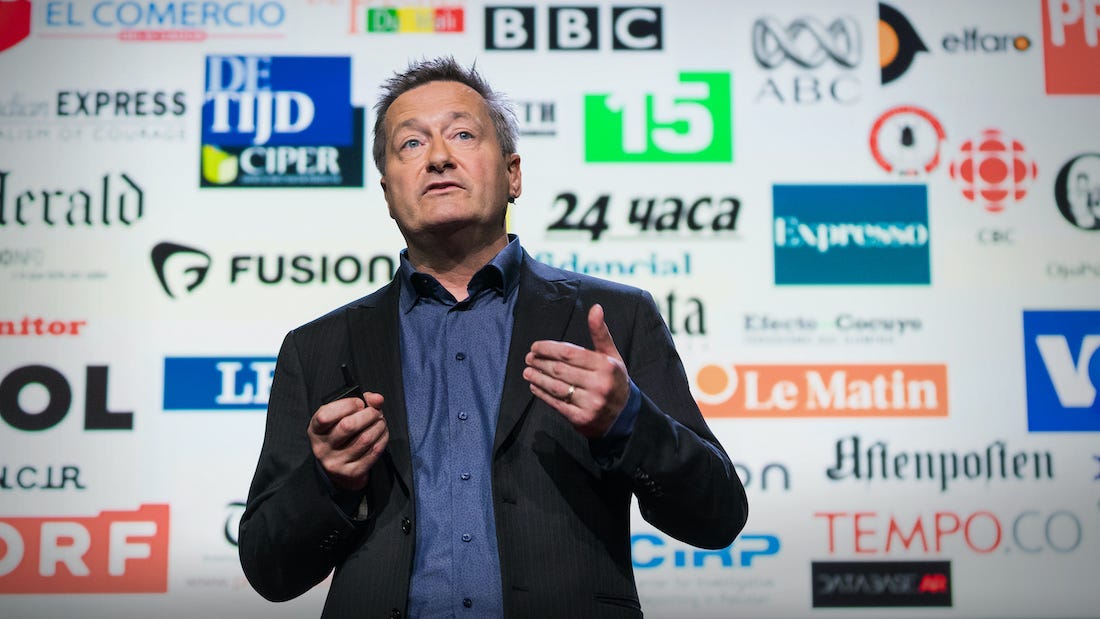
Leading global journalist Gerard Ryle says the Covid-19 crisis has presented an opportunity for journalists to prove journalism’s worth to society.
Gerard Ryle is the head of the International Consortium of Investigative Journalists, overseeing a worldwide team of journalists.
Under his leadership over the past seven years, ICIJ has become one of the best-known journalism brands in the world.
Gerard became the ICIJ’s first non-American director almost ten years ago, after spending more than 20 years working as an investigative reporter and editor in Australia. In that time he investigated subjects from politics to financial and medical scandals, and police corruption.
He has transformed the organisation to lead two of the biggest investigations in journalism’s history, the Panama Papers and Paradise Papers.
He says with the Covid-19 pandemic, there’s an increasing need for timely, accurate reporting and a free press.
“I think it’s an opportunity again for journalists to prove that journalism is actually useful,” Gerard says.
“You’re seeing from the leadership of some countries the danger if you’re not getting accurate information, what happens. I think now you’re now seeing it in real time.
“Truth really matters. This is another opportunity to show that. It is an opportunity, again, for journalism to be relevant.”
He tells me on the The Journo Project podcast, that it’s crucial journalists provide reliable information at this time of crisis.
“I mean, people are now turning to the media for news on the coronavirus almost on an hourly basis. It does bring back the need for good information that is accurate,” he says.
“If essential services start breaking down, then we’re going to obviously be in trouble.
“We’re in critical times, and we don’t know what’s going to happen next. But at the same time, it’s very important to be calm and to help people.
“I guess that is the main reason why we are doing what we’re doing. We’re trying to show that journalism can be done at a level where it actually is useful to society and is in the public interest.”
Gerard says Australia is now one of the most difficult countries in the world to report from.
“When I worked here for like 20 years, it always struck me that this was one of the most difficult places in the world to be a journalist,” Gerard says.
“I think that all I’m seeing now is confirming my views.
“We do not have press freedom in Australia, because the defamation laws here prohibit you being a journalist.
“But I also think that that’s led to a lot of very sloppy journalism.”
He argues that a lot of journalism that is practiced in Australia is not very good, because there’s no incentive for it to be good.
“In America, for instance, as long as you’re fair to the person, you’re not showing any malice—it’s very difficult to sue,” he says.
“But that requires you then going to the person that you’re about to write for, sometimes weeks in advance, and giving them the entire context of what you’re about to do.
“I think that makes for better journalism in the end.
“Whereas here, the practice is always to confront someone, sometimes even the night before you’re about to go to publication. That can lead to mistakes.
“I think it can lead to worse journalism, if I can put it that way, because you’re not giving the proper context.
“I’m saying that, because I did that myself in the past. Because you were always worried about getting injuncted, and so therefore, an injunction would stop you publishing. So you would go as late as possible to the person you were writing about, because that was the way it was. Then afterwards, you would fight it out in court. That, I think, has led to poorer journalism.”
He says that long-time trend has exacerbated Australia’s high media concentration, which also causes complications for media freedom.
“You need to have very deep pockets to be a media owner in Australia, because you are likely to be sued,” he says.
“I mean, it was quite common to get a legal letter the day after publication here if you were an investigative journalist, so it was totally accepted.
“I was very shocked to learn that in America if you get a legal letter, you really have to worry about that legal letter, because it means that you have, in someone’s eyes at least, shown malice. A court case over there can be very expensive.
“In Australia, it’s incredibly common. Almost every investigative reporter in Australia right now is fighting some sort of legal case involving some story they’ve done in the past.”
Two federal parliamentary inquiries into press freedom in Australia are ongoing, and while submissions have closed, neither have handed down their final report.
It’s clear that current events are unfolding faster than the inquiries can keep up with.
Reporters Without Borders has described Ryle’s work with ICIJ as “the future of investigative journalism worldwide” naming him as one of “100 information heroes” of worldwide significance.
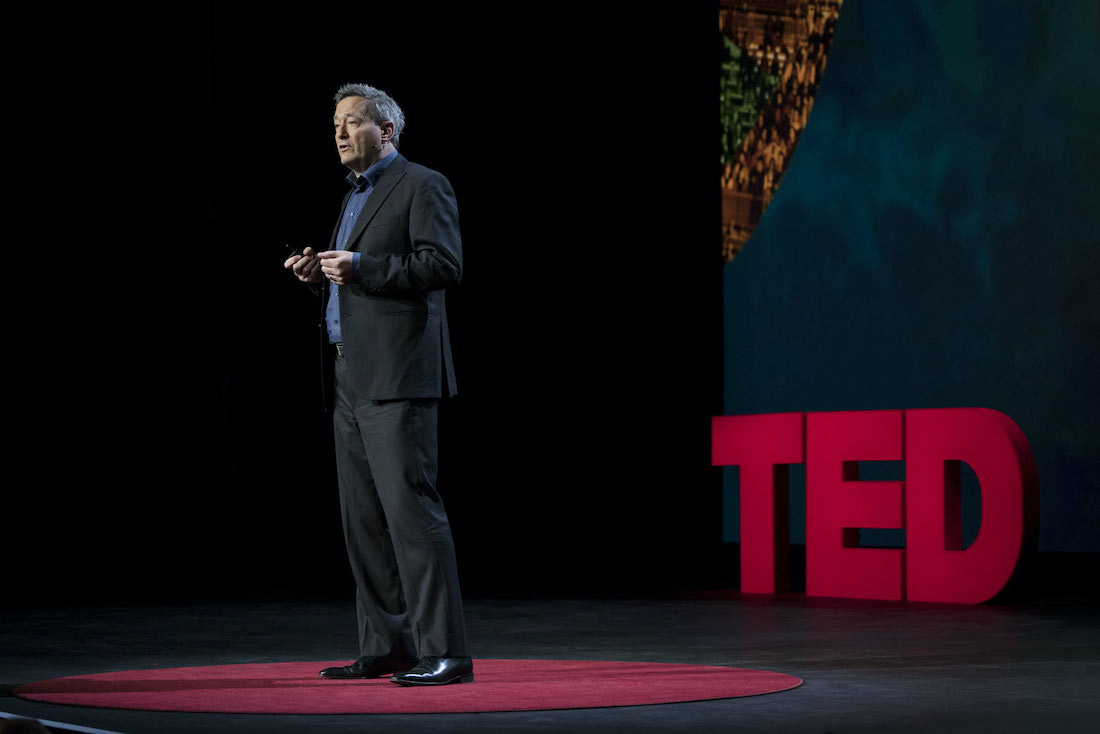
Gerard is a book author and TED speaker and has won or shared in more than 50 journalism awards from seven different countries.
He still calls on his experiences working as a journalist where his reporting career began, in his native Ireland.
“I come from a big Irish family. The older kids tell the younger kids what to do,” he says.
"Every time somebody new comes into the ICIJ now on a big collaboration, it is mind-blowing for them, because they go, ‘Well, why would I want to share information? Why would I want to tell someone what I’m finding?’
“It’s the opposite of everything they’d been taught to do. But it’s the older journalists, the ones that have done it before, that say, ‘No, this actually works. Trust us. This is going to work. I know it’s crazy, but it works.’ You’ve got to share.”
He’s hopeful these new methods can actually renew Australians’ faith in the power of great journalism.
Behind the Scenes

It’s unbelievable looking back on this interview with Gerard and that we managed to pull it off and get me home from Sydney to Brisbane JUST IN TIME before the airlines really started winding back their services.
And what a different world it is now.
I did this interview at Gerard’s home in Sydney, where he was caught out and unable to return to his usual Washington base as head of the ICIJ, because of the coronavirus travel restrictions. So what was once a short holiday home, has now become more of an extended sojourn.
You can also listen to Gerard through your podcast provider if you prefer, by searching for “Streets of Your Town—The Journo Project” on iTunes, Spotify, Google Play or whatever is your preference.
Otherwise you can go to The Journo Project Press Freedom Facebook page and share that with your friends after you’ve had a listen to the podcast through the link there.
What I’m reading
This story lays bare a lot of the gender politics that is not talked about but is definitely at play in this time of social distancing, and the ramifications for families and society.
The COVID-19 pandemic has turned our lives upside down. Amidst the upheavals, it has laid bare how little we normally pay for “women’s work”.
Australia has very low gender equality when it comes to remuneration, ranking 49th on the World Economic Forum Gender Participation and Opportunity Index 2020 that measures workforce participation, remuneration and advancement.
COVID-19 has laid bare how much we value women’s work & how little we pay for it —Women’s Agenda
And Nas Campanella has been incredibly busy since featuring on last week’s Journo Project podcast! The ABC has promoted this talented journo to the national round of Disability Affairs Reporter.
Which further highlights one of my favourite quotes from her in my podcast:
“For too long, stories about people with disabilities, they haven’t been told by people with disabilities so I really am quite keen to change that and to show the community that people come in all shapes and sizes and even though a person might not communicate in the way that you or I do, they still have a voice, they still have a story to tell and it's a damn important one and they deserve the time in the public to share that story if that's what they choose to do.”
Go well Nas! She’s already kicking massive goals with this story from AM this week—have a listen or read the transcript here. Nas’s heightened news sense is highlighting what is still being ignored, that people with disabilities are missing out on vital care and supports during this Covid-19 crisis, and more needs to be done to educate people about their particular needs that should be supported.
Upcoming tease
And now, after releasing this my last podcast from my Sydney Journo Project sojourn, funded by you my beautiful subscriber tribe, it’s time for me to consider the next chapter of Streets of Your Town—The Journo Project.
I’m now looking at pulling together all of my two dozen Journo Project podcasts with Australia’s leading journos, into an e-book that can be used for budding and experienced reporters alike for guidance on how to do this country’s best reporting.
If you have any ideas or tips on how best I can do this, please just press reply to this email and let me know!
In this time of isolation and social distancing, I hope you can help make the world a smaller place as part of The Wandering Journo tribe and share this email and of course the Journo Project podcast with your friends.
Thanks for making this all possible!
Talk soon! And stay safe beautiful people!
Nance









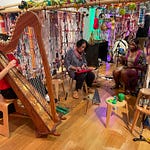
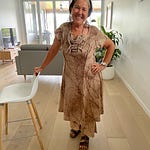
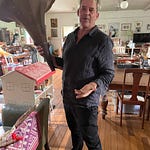
Share this post